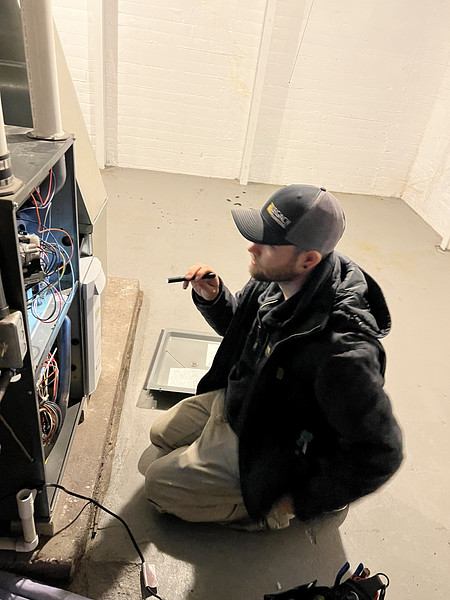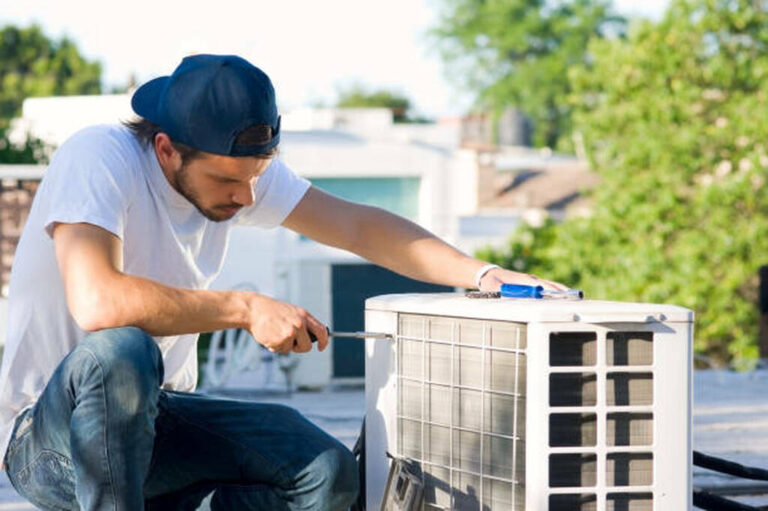During the summer, a working AC system is something most homeowners depend on without thinking twice. But when the temperature spikes in Fargo and your home starts to feel warmer than usual, even though the AC is running, it could mean a problem is hiding inside your unit. One common and often overlooked issue is a refrigerant leak. Although it might sound like a small thing, it can lead to serious performance problems if ignored.
Refrigerant is the fluid that absorbs heat from your home and releases it outside. If there’s a leak, your system can’t cool properly, which leads to rising energy bills, inconsistent indoor temperatures, and additional strain on the equipment. Catching a refrigerant leak early can make a big difference in preventing long-term damage. Knowing what to look for is the first step for any homeowner in Fargo who wants to avoid getting caught in the heat with a system that can’t keep up.
Common Warning Signs Of AC Refrigerant Leaks
Refrigerant isn’t something that naturally runs out, so if your AC system is low on it, there’s likely a leak somewhere in the system. The challenge is that leaks aren’t always immediately obvious, especially when the signs come on gradually. Here are some of the most common signs to watch for:
– Hissing or bubbling sounds: These noises often come from the refrigerant line and may be the result of gas escaping under pressure.
– Slow cooling or warm air from vents: A drop in refrigerant can affect how well your AC cools the home, even if it’s still blowing air.
– Ice buildup on the refrigerant line or evaporator coil: Ice in or around your indoor or outdoor unit can be a clue that cooling isn’t working as it should, which might be tied to refrigerant loss.
– Short cycling: If your system turns on and off quickly without completing a full cooling cycle, it might be struggling to function with a refrigerant imbalance.
– Higher electric bills: If the system has to work harder to cool the same space, energy use climbs even if everything else seems fine.
Let’s say you notice your home isn’t cooling evenly. One room might feel fine, but the rest of the house stays warm. Then you hear a slight bubbling noise coming from near the outdoor unit. These signs together could point toward a refrigerant leak, and the longer it’s ignored, the more likely it becomes a source of long-term damage or even a full system outage during the hottest part of the season.
What Causes Refrigerant Leaks In Your AC System?
Refrigerant leaks don’t come out of nowhere. Most of the time, they develop slowly over time, starting small and getting worse as the system continues to run. Many homeowners don’t realize a small issue is present until it affects comfort or efficiency. Below are some of the typical causes behind refrigerant leaks:
1. Corrosion on refrigerant lines: Over time, moisture and chemicals in the air can wear down the copper tubing, causing tiny holes.
2. Vibrations or physical wear: Continuous vibration can stress joints and connections, especially if screws or brackets loosen with age.
3. Factory defects or improper installation: Though less common, poor assembly or errors during the original install can result in long-term issues.
4. Punctures from service tools: If the system has been worked on before, and tools were mishandled, damage might have been done during the process.
5. Aging system components: As AC units age, materials naturally break down, making older systems more prone to leaks if not maintained.
Heat and time are both unforgiving on AC systems in use for several years. That’s why an overlooked pinhole leak can quietly drain refrigerant and start a chain reaction of other problems. When you’re dealing with heat, humidity, and longer cooling cycles in Fargo during summer, these kinds of system weaknesses are pushed to their limits. Being aware of the reasons behind leaks can help you see the value of preventive care. Regular inspections and tune-ups can help spot corrosion, loose connections, or vibration stress before they result in system breakdowns.
Steps To Take If You Suspect a Refrigerant Leak
If you think your AC system might be leaking refrigerant, taking quick action can help limit the damage and keep your home more comfortable during Fargo’s hot summer months. Small leaks may seem like minor issues at first, but they usually get worse over time and can create system-wide problems if left alone. Here’s what you can do if you notice any of the signs previously mentioned:
1. Turn off the AC unit. If your AC is struggling but still running, switch it off. This helps avoid extra stress on the compressor or damage from ice buildup.
2. Check the area around your system. Look for any signs of ice, puddles, or rust-colored stains. You may even hear a soft bubbling or hissing sound near the outdoor unit.
3. Keep your home ventilated. If the air inside your home feels stuffy or humid, cracking a few windows can keep the air moving and reduce discomfort until professional help arrives.
4. Contact our professionals. Dealing with refrigerants requires special tools and certification. Our technicians are trained to safely handle leaks and restore your system without risking harm or further damage.
5. Don’t delay the repair. Waiting too long to schedule service can cause more expensive repairs down the road. Refrigerant leaks tend to stay hidden until the problem becomes too big to ignore.
Fargo families depend on their cooling systems daily throughout the summer. Even short interruptions in performance or cooling can throw off your routine. Early action is the best way to avoid those sudden moments when your home’s temperature rises despite the system running nonstop.
Why AC Maintenance In Fargo Helps Prevent Refrigerant Leaks
Even newer AC systems benefit from consistent care. Maintenance helps keep refrigerant levels steady and gives our technicians a chance to spot early wear in lines, joints, and internal seals. It’s a layer of defense that helps stop small issues from becoming expensive repairs.
Regular professional maintenance can help protect your system by:
– Catching small refrigerant leaks early before they spread or harm the compressor
– Checking refrigerant pressure levels to ensure they’re within manufacturer specs
– Cleaning critical parts that support cooling, such as the coils and condenser
– Testing for vibration and making sure connections are secure
– Clearing drain lines and filters that may place extra stress on your unit
Even if everything seems to be running fine, hidden flaws caused by frequent use and outside weather conditions can still lead to leaks over time. High heat and long cooling cycles create added wear on the lines. Fargo summers often mean systems run multiple hours a day, and what was a minor problem in early June might leave you without cool air by mid-July.
Homeowners who treat maintenance as part of their summer plan are typically better protected against surprise mechanical issues like refrigerant leaks. Sticking to an annual maintenance routine makes future service calls quicker, easier, and less costly.
Keeping Your Home Comfortable With Proper AC Care
Refrigerant leaks might not show up all at once, but the effects can be felt in your comfort level, rising bills, and extra strain on your cooling system. Taking action at the first sign keeps things manageable and helps prevent long gaps without air conditioning during the hottest days of the season.
Reliable AC maintenance in Fargo isn’t just about scheduling a tune-up now and then. It’s about keeping your system strong before problems appear. By understanding how refrigerant leaks happen and staying alert to early warning signs, you’re already one step closer to staying cool and avoiding system failure. Regular checkups by trained technicians give you peace of mind that your system is being looked after the right way.
Ensure your cooling system performs at its best by scheduling regular AC maintenance in Fargo, which helps catch minor issues like refrigerant leaks before they evolve into costly problems. LEGACY offers expert service to protect your comfort during the hottest days while keeping your energy bills in check. For a quick estimate or to book a service visit, please contact us today.





